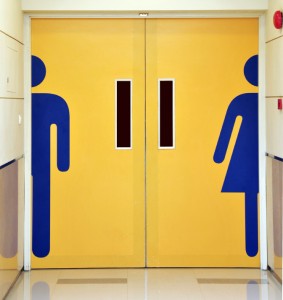 Addicted people abuse substances and engage in certain behaviors for a number of different reasons. Over the years, research has found that men and women experience addiction very differently, from the reasons that initially bring them into addiction to the ways their addiction needs to be treated. A good way to treat these differences is through gender-specific rehab, which uniquely addresses each stage of addiction for men and women.
Addicted people abuse substances and engage in certain behaviors for a number of different reasons. Over the years, research has found that men and women experience addiction very differently, from the reasons that initially bring them into addiction to the ways their addiction needs to be treated. A good way to treat these differences is through gender-specific rehab, which uniquely addresses each stage of addiction for men and women.
Reasons for Initial Use
When it comes to the reasons behind initial drug use, men and women often come from completely different places. Men tend to blame their addiction on external happenings, meaning they are more likely to blame other people or negative life events for their drug and alcohol use. Women, on the other hand, more often blame their problems on themselves.
Men may begin drinking heavily or using a specific drug regularly as a way to cope with things happening to them, while women seek substances to cope with things happening inside them. Women also progress to addiction faster than men, on average, and females with addiction die younger than their male counterparts.
One benefit of gender-specific rehab is the reasons for initial substance-seeking can be appropriately addressed by the treatment team and can be processed with like-minded peers.
Asking for Help and Entering Treatment
Male treatment admissions outnumber female admissions because women tend to have a harder time seeking the assistance needed for any problem at all, and especially for a substance abuse issue. Women seem to feel it is a personal responsibility to help themselves, while men take more time to admit a problem, but then seek help with greater ease.
Since women are usually the primary caregiver in a family, seeking treatment is not always feasible. Men, on the other hand, have a difficult time leaving work responsibilities to enter rehab. The shame surrounding each choice is a common topic in each gender-specific group.
This is where the benefits of gender-specific treatment really come into play. Because women are often natural caretakers and givers, women in a therapy group tend to offer help to each other immediately. On the other hand, male therapy groups tend to be more solution-focused, which is often effective for male peers, but not as helpful for women in recovery.
Needs In Treatment
Men and women also generally respond to treatment differently. For instance, denial plays a major role in addiction. Men in denial respond well to direct confrontation. Force often helps them accept their disease. For women in denial, this approach triggers shame and guilt. Instead, females with addiction need support, and different methods of countering denial.
Similarly, women need extra comfort and safety to share personal experiences. For many women, opening up about emotional pain and past trauma becomes easier in a group of empathic and caring women. However, for men, when females are present, the stories tend to change. The ability to truly share where addiction has led a man requires a group of just men.
Overall, gender-specific rehab provides each client with what he or she needs to begin the healing process and a new life in recovery.
Associate Director of Shadow Mountain, Joey Holub was also the first resident and graduate of Shadow Mountain. Now over 5 1/2 years sober, he can relate firsthand to the feelings every addict faces during recovery.

 — September 2, 2013 @
— September 2, 2013 @ 







